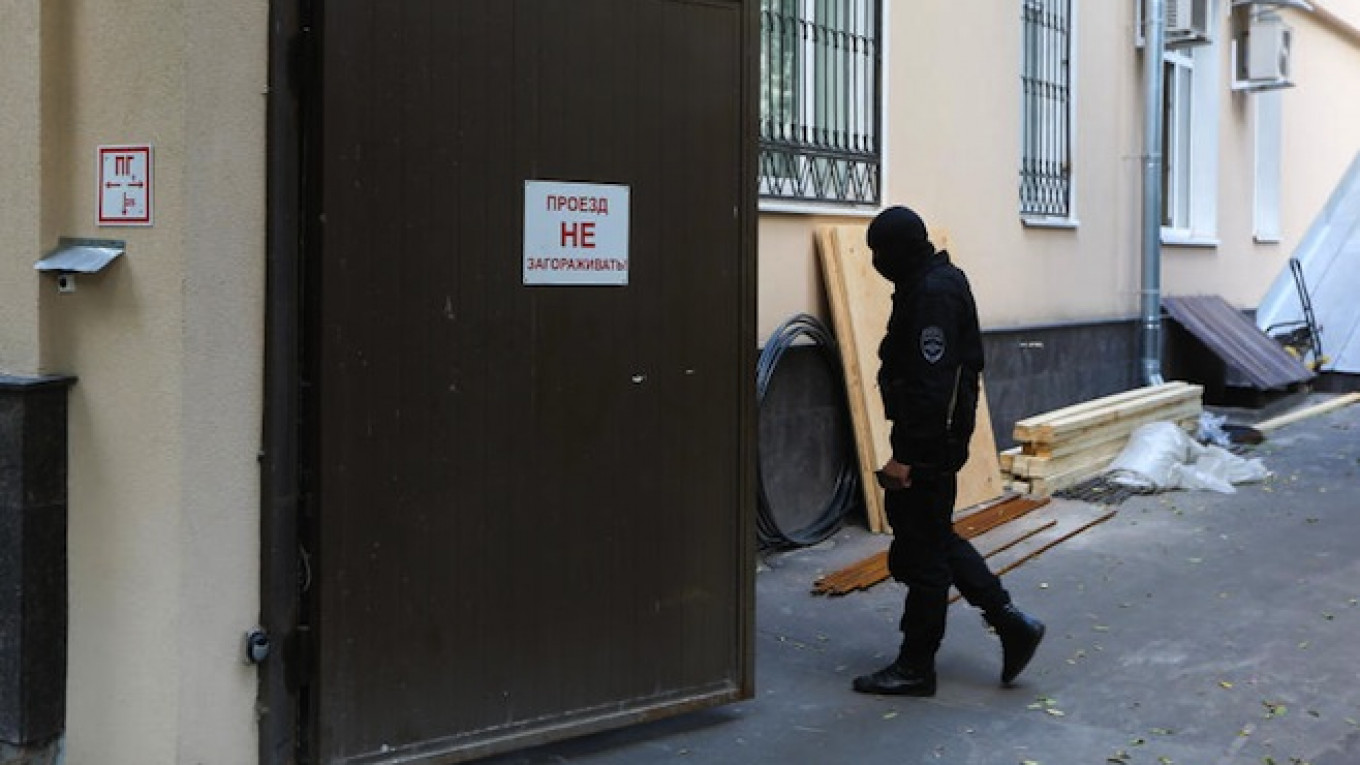
There have been arrests and releases, petty prosecutions and sensible legal revisions. The overall trend in Russia may be toward a tougher line on potential dissent, but the path is a faltering, unclear one. Rather than Machiavellian subtlety this reflects the very absence of specific policy, generating a competition to fill the gap and opportunities for personal and institutional gain.
On the debit side of the balance sheet, Kirov region governor Nikita Belykh and Sergei Fedotov of the music industry's collecting agency RAO have been arrested on corruption charges. The ‘Yarovaya Laws,’ named after hardline lawmaker Irina Yarovaya, proposing new powers of surveillance and repression, is currently passing through the legislature.
Meanwhile,in the latest skirmish in Moscow?€™s war against disrespectful social media, one Vladimir Luzgin from Perm has been fined 200,000 rubles ($3,100) for reposting an article on Vkontakte questioning the official line on the Nazi-Soviet partition of Poland in 1939. And, in what is either a piece of Orwellian over-surveillance or a willful bid to kill off the country?€™s tourism industry, the Culture Ministry is proposing that hotels should search their guests?€™ luggage and fit cameras into every hallway.
No wonder people are raising the specter of Soviet leader Josef Stalin,but if this is the start of a new round of purges, it is a strangely incoherent and even hesitant one.
Dmitry Kamenshchik, embattled owner of Domodedovo Airport, has been released from what looked like a political-piratical house arrest. Yarovaya's laws, far from being rubber-stamped — as tends to happen with those considered “Kremlin bills” ?€” has instead been diluted and still faces resistance from usually-compliant telecommunications companies.Meanwhile, there is still no clear sense of the red lines people need to avoid crossing.
This is no way to run a proper purge.
There has been no new directive from the Kremlin. Instead, there are ambiguous signals of a concern about the risks of mass protest andelite disloyalty, to which individuals and agencies have scrambled to respond as they think ?€” hope ?€” President Vladimir Putin would want.
To an extent, this is an end in itself, the latest mise-en-scène in the Kremlin?€™s theater of terror, a drama intended to cow those Russians thinking of making trouble, without all the blood and hassle of actual terror.
However,in the usual way, this has also encouraged a motley and often unpleasant array of individuals, institutions and factions to leap forward in a flurry of activity.
For some, it is an opportunity to put forward policies in the hope the Kremlin will adopt them. This is how much of Russian policy-making works these days: not produced by a secretive cabal so much as shopped around in a marketplace of ideas ?€” in the media, in the Duma, in action ?€” in the hope to find a buyer in the Kremlin.
For others, and sometimes at the same time, it is an opportunity for more direct advancement, institutional or purely personal.
Irina Yarovaya, proponent of the current piece of repressive legislation,is a long-term ally of the Federal Security Service (FSB), for example. Her laws not only serve to expand its powers, they also consolidate its role as Russia?€™s foremost eavesdroppers.
This comes, after all, at a time when the FSB?€™s political security role is being encroached on by the National Guard (how long before it starts lobbying for its own intelligence arm?) and the FSO, the Federal Guard Service (which also has a communications intercept capability). Meanwhile, its infamous Economic Security Service has just suffered a bloodletting that has opened up lucrative new opportunities for some of its rivals.
Alexander Bastrykin of the Investigative Committee has issued a manifesto for the creation of an ?€?ideological policy of the state,?€? looking to make himself the high priest of Putinism. The FSO is quietly colonizing more and more senior positions with its veterans. Everyone is using the Kremlin?€™s new alarmism for their own advantage.
This is not confined to Moscow or the big players. Many of the more petty actions ?€” such as Luzgin?€™s prosecution for a report only seen by 20 people across the country, or the spate of visa-related harassments of foreigners in Nizhny Novgorod ?€” smack of local initiative, not central decree.
On the surface, this mood of competitive coercion serves Putin every bit as well as a more coordinated campaign. It keeps spooks and prosecutors busy, and potential targets fearful and divided.Meanwhile, any individual case can be closed or reversed as and when the government wants.
However,there are deeper risks for the Kremlin. It is a good way to instill fear, a poor one to win loyalty. The structures of the state become covertly privatized. As ?€?raiding?€? returns to the fore, no one wants to set up businesses or leave money in the country.
More to the point, it suggests a moral cowardice and a paucity of ideas at the heart of government. With the Kremlin as unwilling wholeheartedly to repress as to reform, the slow, debilitating slide into irrelevance continues.
Mark Galeotti is professor of global affairs at New York University and expert in Russian security services.
A Message from The Moscow Times:
Dear readers,
We are facing unprecedented challenges. Russia's Prosecutor General's Office has designated The Moscow Times as an "undesirable" organization, criminalizing our work and putting our staff at risk of prosecution. This follows our earlier unjust labeling as a "foreign agent."
These actions are direct attempts to silence independent journalism in Russia. The authorities claim our work "discredits the decisions of the Russian leadership." We see things differently: we strive to provide accurate, unbiased reporting on Russia.
We, the journalists of The Moscow Times, refuse to be silenced. But to continue our work, we need your help.
Your support, no matter how small, makes a world of difference. If you can, please support us monthly starting from just $2. It's quick to set up, and every contribution makes a significant impact.
By supporting The Moscow Times, you're defending open, independent journalism in the face of repression. Thank you for standing with us.
Remind me later.


